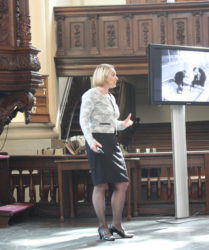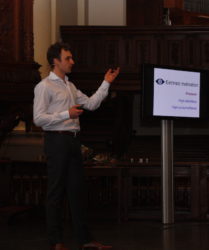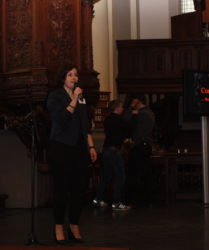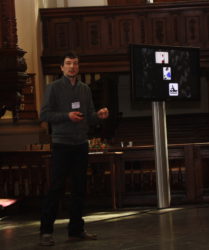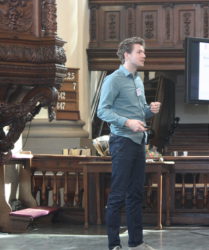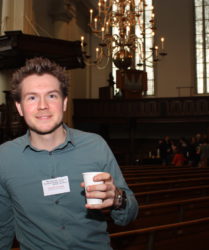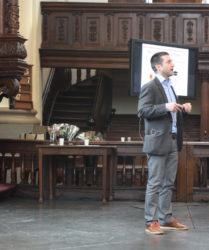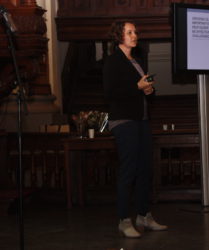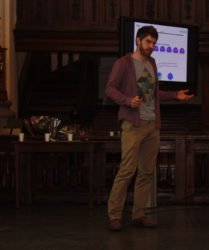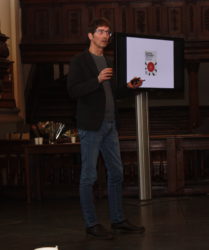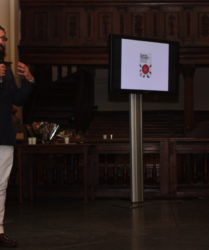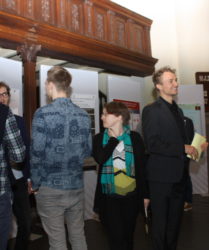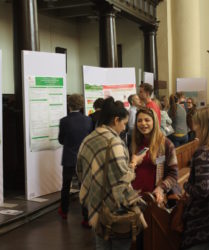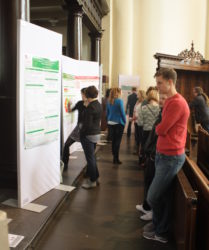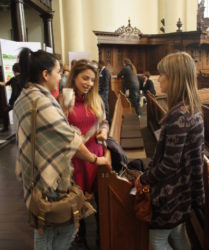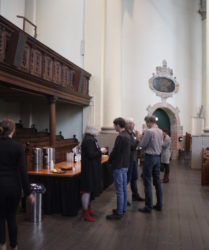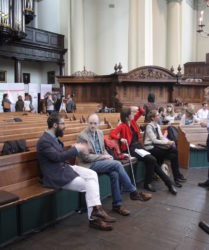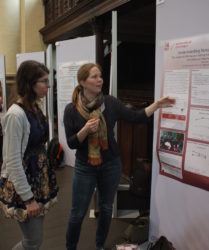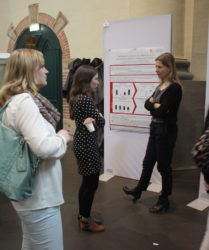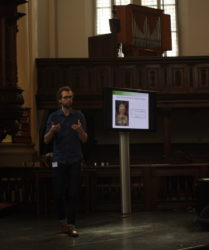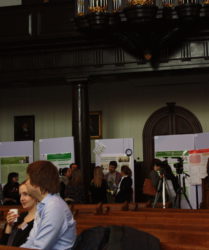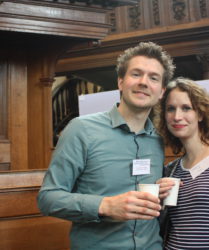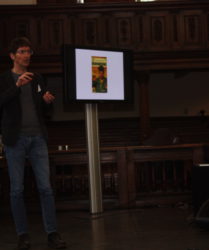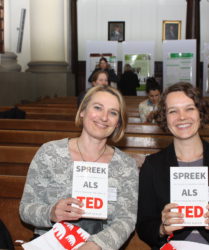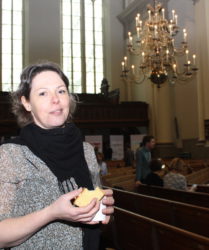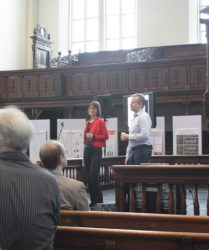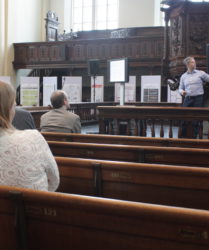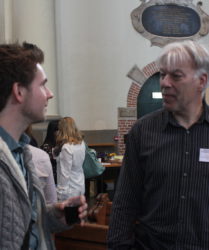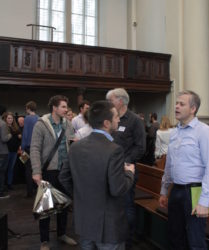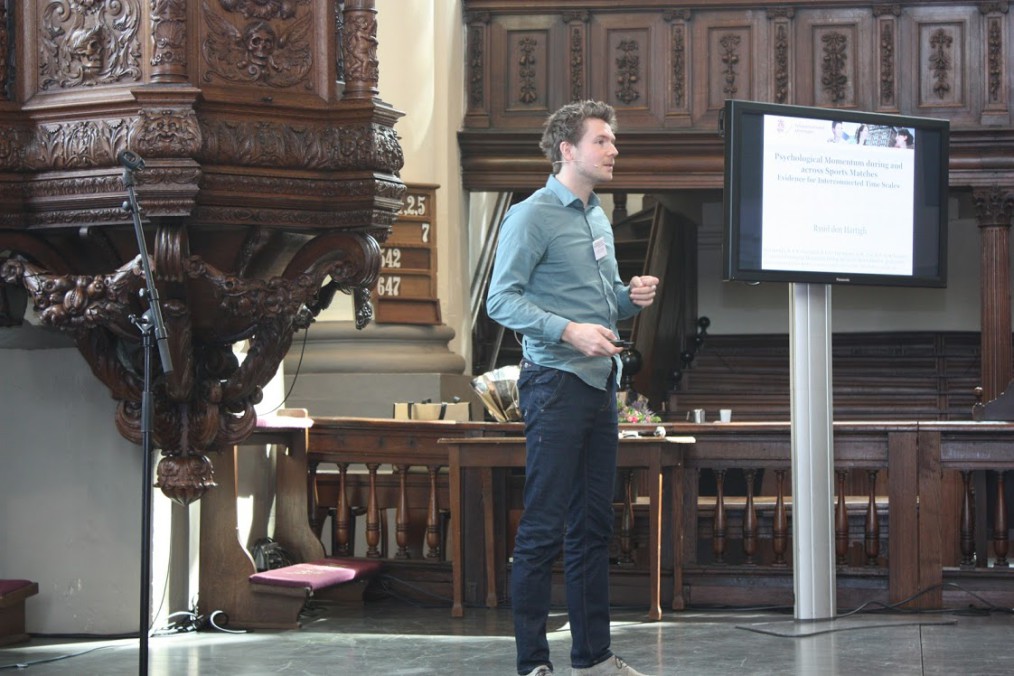
Heymans Symposium 2016: A Student’s Perspective
“Research Worth Spreading” – with this promise the Heymans Symposium took off last Thursday in the Nieuwe Kerk. The aim of this event was to inspire and be inspired by the broad research that is conducted within the different departments of the Heymans Institute. The afternoon consisted of a good mix of TED-like talks, the awarding of prizes, and the possibility to walk around and have a look at the posters made by PhD students. For students like us, a good opportunity to meet and chat with the researchers.
Did we get inspired? We certainly did. Here’s our personal selection of the most thought-provoking presentations.
Lea´s favourite: How Complex We Really Are: Wii Show You
At first I was a bit worried about writing about the talk “How Complex We Really Are: Wii Show You.” given by Dr. Ralf Cox. Like his topic, his talk was very complex. Still, I believe it’s a topic definitely worth thinking about. The talk´s main message was that complex systems underlie all human behaviour. Therefore, all simple tasks that are normally the object of studies emerge out of complex systems. Dr. Cox argued that one needs to take this into account when studying human behaviour because it suggests that individual data points are not independent of each other. To deal with this complexity one needs fractal scaling. He explained that fractal scaling enables you to gather information about individual parts of the whole system and helps you to distinguish between groups. One can use this for example to analyse EEG output to distinguish between dyslectic or normal readers. I find his talk very inspiring as it takes an exciting innovative and, in my opinion, more complete approach to the study of human behaviour.
“Individual data points are not independent of each other, but emerge out of complex systems.”
Vladimir’s favourite: The Consequences of Education.
Dr. Toon Kuppens explains the seemingly impossible – education can have a negative impact. To illustrate, he started off with some jokes about Chavs – a slang word for young, low-educated people in the UK. For instance: ‘What is the difference between an onion and a dying Chav?’ ‘Onions make you cry.’ While the audience was giggling, Dr. Kuppens turned to the next slide, replacing the word ‘Chav’ by one with a more racist connotation. The audience went silent, blushed with shame for laughing just a few seconds ago. Dr. Kuppens argued that people treat education as something people can choose, whereas, in fact, the individual’s social background heavily determines whether someone will enjoy no, poor, or good education. Therefore, he urged the audience – people that belong to the group of the highly educated – to abandon meritocracy and to start developing empathy for people that were not able to enjoy the same education. I would rate Kuppens’ talk as my favourite for the reason that he illustrated a societal problem in a confronting, but highly engaging way.
“Dr. Kuppens illustrated a societal problem in a confronting, but highly engaging way”
Florian’s favourite: We Need the Null!
My favourite talk was the first talk given that afternoon. I liked that it was held first, because statistics and methodology have a high importance across disciplines to ensure the validity of experimental conclusions. Dr. Don van Ravenzwaaij motivated the audience with very convincing arguments and paradoxical examples to not just consider the Null Hypothesis but also the Alternative Hypothesis when doing statistical tests. Often both Alternative Hypothesis and the Null Hypothesis are equally likely but are not adequately compared relative to each other. A shocking illustration of this fallacy can be observed in the famous court case of Sally Clark, in which a mother was convicted of double child murder on the basis of biased statistical conclusions. A solution to prevent such biases from happening in society and also in your own research is to clearly state the Alternative Hypothesis and compare it to the Null Hypothesis.
“Often both Alternative Hypothesis and the Null Hypothesis are equally likely but are not adequately compared relative to each other.”
Award session
The poster of Dorien Bangma was honoured by the Poster Award. This year’s Snijders Kouwer prize for the most outstanding journal article as well as the Mindwise Award for the best rated blog post went to Ruud den Hartigh
All in all, the three of us agree that not just the talks but especially the personal atmosphere during the symposium was what got us excited by the research conducted in our faculty. The small scale of this event enabled us to have interesting discussions with the researchers in the break. Furthermore, the set up, namely the mix between talks and the poster sessions, was very stimulating. Concluding, we think events like this offer a great opportunity for both researchers and students to get some insight in different research and find opportunities to collaborate. We thank the organizers of the symposium for organising this exciting event!

